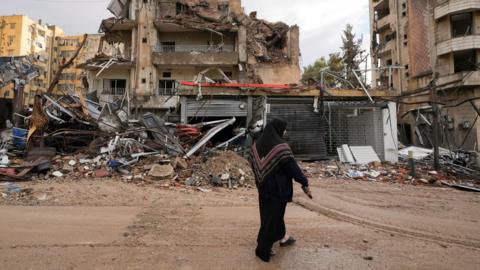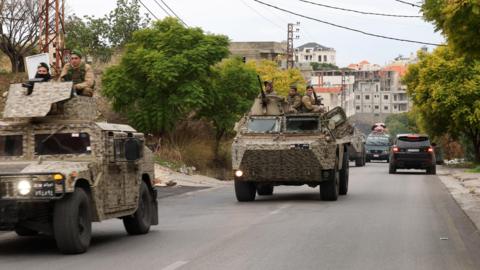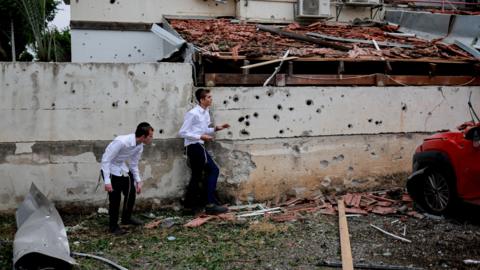US President Joe Biden told reporters on Tuesday night that it was "designed to be a permanent cessation of hostilities”.
The 13-point agreement between the governments of Israel and Lebanon - and not Hezbollah - also says both countries are “prepared to take steps to promote conditions for a permanent and comprehensive solution”.
It states that the Lebanese government will "prevent Hezbollah and all other armed groups in the territory of Lebanon from carrying out any operations against Israel".
Israel, meanwhile, will "not carry out any offensive military operations against Lebanese targets, including civilian, military, or other state targets, in the territory of Lebanon”.
The basis of the deal, it notes, is the "full implementation, without violation" of UN Security Council resolution 1701, which ended the last war in 2006.
The resolution required, among other things, Hezbollah to remove its fighters and weapons from the area between the Blue Line - the unofficial border between Lebanon and Israel - and the Litani river, about 30km (20 miles) to the north.
Israel said that was never implemented, allowing Hezbollah to build extensive infrastructure in the area, while Lebanon said Israel’s violations included military flights over its territory.
The agreement also notes that the resolution reaffirmed previous Security Council calls for the "disarmament of all armed groups in Lebanon".


